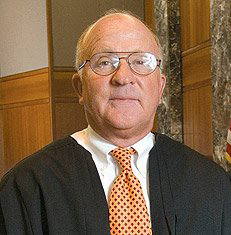When Lawrence Meyers won a seat on the statewide Court of Criminal Appeals in 1992, he was the first Republican elected to the state’s highest criminal court.
This month he made history again. After switching parties, Meyers, who had been a judge in Fort Worth, became the first Democrat to hold statewide office in Texas in the 21st century. Now he is running for a spot on the all-Republican Texas Supreme Court.
Though Meyers was not elected to his current post as a Democrat, his high-level defection has given the party a shot of momentum and some bragging rights ahead of the 2014 elections, said Gilberto Hinojosa, the chairman of the Texas Democratic Party. But Republican officials suggest that the switch was more about their party’s cramped races and not an indicator of any sea change.
Democrats have not had one of their own in statewide elected office since the late 1990s, and nearly every person switching parties in the last two decades has gone in the opposite direction.
“With this and the candidates that we are fielding in this election, I think people are saying, ‘Wow, this is a totally different Texas Democratic Party,’” Hinojosa said.
Meyers, who has flirted with party-switching in the past, did not respond to requests for comment.
Republicans laugh this off, and not without justification. The last R-to-D of any prominence I can think of is former State Rep. Kirk England, who changed sides after the 2007 legislative session. He won re-election as a Dem easily in 2008, then got swept out in the 2010 bloodbath. (He almost certainly would have been a victim of redistricting in 2011 if he had survived 2010; Dallas County lost two districts, and his district number, HD106, is now in Collin County.) It’s nice to have someone with a D after their name in a statewide position, but it’s hard to know what it means just yet. For one thing, as long as Judge Meyers remains mum about his reasons for switching, we don’t know how much of it was motivated by genuine alienation from the Texas GOP, and how much was opportunism. When legislators switch parties, they have multiple colleagues to welcome them and to offer them guidance and a model of legislative behavior. Judge Meyers is the only Dem on his bench. There’s no guarantee his behavior as a judge will change in any way that might reflect the difference in values between his old party and his new one. I don’t need Judge Meyers’ motives to be pure here, but it would be nice to know that there’s more here than a different place for him to send his ballot application.

